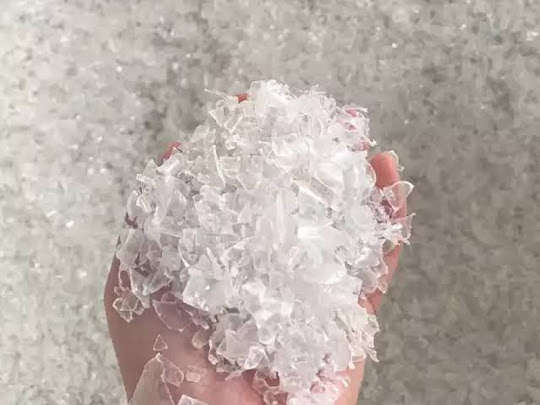Zipper Monofilament Yarn Delhi: The Backbone of Durable Fasteners
As demand for high-performance fasteners grows, zipper monofilament yarn in Delhi has emerged as a key material for manufacturers seeking strength, consistency, and cost-efficiency. Zipper monofilament yarn is a single-strand synthetic fiber, typically made from nylon or polyester. Unlike multifilament yarns, which are composed of multiple fine threads twisted together, monofilament yarn is extruded as one continuous filament. This gives it a smooth surface, high tensile strength, and excellent durability—making it ideal for zipper coils and tapes.
Key Features:
1. Uniform thickness for consistent zipper performance
2. Abrasion resistance for long-term use
3. Low moisture absorption for stability in humid conditions
4. Customizable colors and sizes for design flexibility
Manufacturing Process
Delhi’s manufacturers use precision extrusion techniques to produce monofilament yarn with tight tolerances and consistent quality. The process typically involves:
1. Polymer Selection: Nylon or polyester pellets are selected based on the desired strength and flexibility requirements.
2. Melting and Extrusion: The polymer is melted and pushed through a spinneret to form a continuous filament.
3. Cooling and Drawing: The filament is cooled and stretched to enhance its mechanical properties.
4. Winding and Packaging: The finished yarn is wound onto spools or bobbins, ready for use in zipper production.
This controlled process ensures that the yarn meets the rigorous demands of zipper manufacturing, where precision and reliability are non-negotiable.
Applications Across Industries
Zipper monofilament yarn is used in a wide range of products, including:
1. Apparel: Jackets, jeans, dresses, and activewear
2. Luggage: Suitcases, backpacks, and travel gear
3. Footwear: Boots, sneakers, and performance shoes
4. Industrial Use: Tents, tarps, and protective gear
5. Packaging: Reusable bags and cases
Its versatility makes it a staple for manufacturers who prioritize durability and design flexibility.
Choosing the Right Yarn
When selecting zipper monofilament yarn, consider the following factors:
1. Material Type
Nylon: Offers superior strength and flexibility
Polyester: More cost-effective and UV-resistant
2. Yarn Thickness
Different applications require different yarn sizes. Common diameters range from 0.45 mm to 1.05 mm, depending on the zipper type and intended use.
3. Color Matching
Delhi suppliers often offer dyed-to-match (DTM) options, allowing yarn to blend seamlessly with fabric and zipper tape.
4. Performance Requirements
For outdoor or industrial use, look for yarns with enhanced UV resistance, flame retardancy, or low shrinkage.
Sustainability in Yarn Production
As global demand shifts toward eco-conscious materials, Delhi’s manufacturers are adapting with:
1. Recycled monofilament yarns made from post-consumer plastics
2. Low-impact dyeing processes to reduce water and chemical usage
3. Biodegradable packaging for yarn spools and cones
These innovations help reduce environmental impact while meeting the performance standards of modern zipper applications.
Packaging and Delivery
Zipper monofilament yarn is typically packed in:
1. Spools or bobbins for easy integration into production lines
2. Cartons for bulk transport
3. Rolls or packets for sampling and small orders
Delhi’s proximity to major transport hubs—including IGI Airport and Inland Container Depots—ensures fast and reliable delivery across India and abroad.
Final Thoughts
Whether you're a fashion brand, luggage manufacturer, or industrial supplier, sourcing high-quality zipper monofilament yarn Delhi can elevate your product’s performance and reliability. With its blend of technical expertise, manufacturing capacity, and customization options, Delhi remains a top destination for this essential material.

.jpg)
.jpg)

Comments
Post a Comment